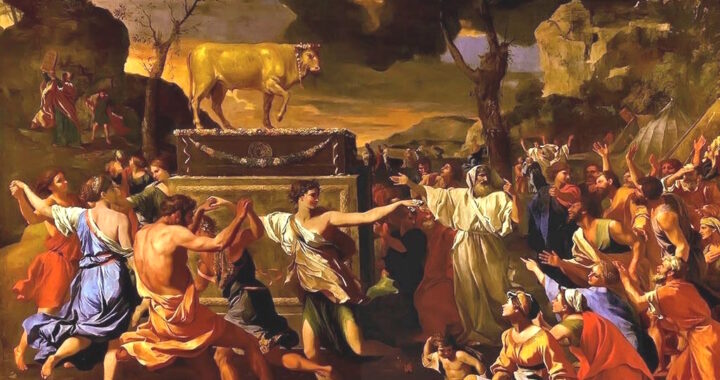In my books I argue that Christian theology in the catholic tradition is excessively preoccupied with things that are not really essential to the faith itself. Churches and denominations are separated from each other and condemn each other for differences of opinion about things that do not really matter. The actually essential things that Jesus teaches are easy to appreciate and relatively few in number. They are things that Christians of all sorts already have in common, like that God is our Father, that we have the forgiveness of sins, that we can trust in his providential care, and that we must live as brothers and sisters in this life while anticipating the life of the world to come. The doctrines by which Roman Catholics, Eastern Orthodox, and various kinds of Protestants are distinguished from one another are less fundamental and important to the faith than these few and simple teachings. I think that Christians should repent of their “majoring in the minors,” so to speak, leaving their differences as unimportant matters of opinion and putting the emphasis rather on the things they have in common rather than upon the things that distinguish them.
Following this advice would mean that the corporate worship of Christians would have to look very different. One particular thing worth noting is that there would have to be considerably less emphasis put on the sermon as an act of theological education and interpretation of the Bible. This emphasis should be put somewhere else. Corporate worship would have to be less a matter of hearing one’s sophisticated theological convictions confirmed and exposited at length by the preacher and more a matter of something else. To that end, I would like to share an idea which came to me as I was working on my book Theological Authority in the Church.
I think churches should be organized as “Jesus meal clubs.” This idea can be explained as follows. The corporate worship of Christians every week would be fundamentally organized around a shared meal preceded by certain simple and achievable corporate acts of religion. These would be as follows.
- Gathering. A group of Christians would all meet in one place, whether someone’s house or a public park or whatever is most convenient. Each person or family must bring some one food item, specifically something that can be eaten raw or else which did not require very much prior preparation, e.g. fruits or vegetables or cheese or nuts. It is desirable that a loaf of bread and a bottle of wine be brought as well. Not too much food should be brought so that none is wasted.
- Song. A song of worship for God is sung. It should be a song that everyone knows and which is easily singable for a group. It is best if the singing is done without the accompaniment of an instrument.
- Reading. A passage from the Bible is read, preferably something simple and exhortational, carefully and clearly at length with the entire gathering attending as far as is possible to the reading. Someone may give a brief discourse about the text if they are capable, but this is not necessary. The less explanation a text needs, the better it is for the reading.
- Promise. Those gathered consult with each other about what good they can do in the coming week, whether as individuals or as a group. They may consider pooling money for someone in need, or visiting and spending time with a sick person, or praying for others every day, or making promises not to engage in certain destructive behaviors, etc. It should be something that is both significant and yet achievable, whether for the group or for the individual.
- Prayer. Those gathered should ask each other how they can pray for one another and then they should pray together as a group. They may also make a corporate confession of sin and ask for God’s forgiveness.
- The Meal. Those gathered should eat all the food they have brought together. A prayer of thanksgiving should be said both for the bread and for the wine before they are distributed to each, as well as after the meal is finished. The prayers should thank God for the provision of food by which he cares for us as his creatures and for the salvation that he has accomplished through Jesus his Son. The prayers can drawn from or be modeled after those found in the Didache.
- The Departure. Everyone goes back home. A final prayer of thanksgiving may be sad before leaving.
If it were up to me, this is what the average gathering of Christians would look like. It is true that there is something very austere and bare about organizing corporate worship in this manner, but I think that is for the better. There is no need for millions of dollars for a building; there is no need for expert musicians; there is no need for a celebrity personality to run the show or be in charge of things. It is simply a group of Christians gathering in one place to worship and give thanks to God, to hear Jesus’s teachings, to pray for one another and commit to doing good together, and to eat a meal together.
This is a way of organizing corporate worship around lived spirituality rather than around doctrine and theological opinions. There need not be a sermon, and it is not necessary to read texts which demand a sophisticated theological exposition. Opinions will naturally differ about how such things are to be understood, and to raise those matters in the context of corporate worship is to open the door for debates and schisms and breakdowns in communion over differences of opinion. People are naturally free to believe whatever they think is true about those matters, and if they care enough about these issues, they can investigate them freely on their own time.
A discussion about the text may follow the reading, but it is important that it be undertaken in low-stake conditions of freedom and openness. The purpose of the gathering is not the exposition of theological ideas but rather to enjoy a meal together in God’s presence and in gratitude to him as his children. The temptation to turn the gathering into a kind of miniature theological conference or (God forbid) censorial inquisition must be resisted, as should the pressure to force the Jesus meal club into the form and shape of existing Christian churches. People can believe whatever they want about the debatable questions of theology. The point of the Jesus meal club is to sing together, pray with and for each other, to listen to Jesus’s teachings, and to eat a meal in God’s presence out of gratitude for his goodness. The emphasis must always be placed on what is shared in common by everyone.
It should be noted that the Jesus meal club does have a statement of faith. It is a simple one: We believe that God our Father will save us because of his Son Jesus. Everything that one does in the course of the gathering is premised upon this fundamental conviction regarding the promise of salvation from God through his Son Jesus. The whole gathering is undertaken as a grateful expression of the expectation of salvation, whether it be the singing, or the praying, or the reading, or the consulting with one another about how to do good, or the eating. The precise interpretation of this statement of faith in light of any particular theological scheme is unimportant. Christians may disagree with one another with respect to the question how God will save us and in what sense this will be because of his Son. The “how” is not as important as the “that.” The finer details are all debatable, as anyone who studies theology knows well, and they are relatively unimportant. If a person can agree to the basic statement of faith, then they are welcome to join.
I think that there has been a two-thousand-year experiment run in the Christian religion. Christians have emphasized certain things around which their identity as Christians is constructed: very well-defined doctrinal systems, certain institutional arrangements and justifications of presumed legitimacy, certain complex liturgical schemes, and so on. All of this in my opinion has only led to division and trouble. Christians disagree with one another about fine points of theology and in the worst case scenario send each other to hell over their differences. The preservation of institutional arrangements take precedent over the spiritual fellowship that exists among Christians of different churches. Complex liturgical schemes become so important that the church becomes dependent on the presence of experts in order for its corporate worship to be tolerable or even possible. I have argued at length in my books Theology of the Manifest and Theological Authority in the Church that all these things are inessential at best, colossal wastes of time at worst.
The Jesus meal club is for me an experimental idea. It is a proposal for an alternative experiment to the one that has been run in the Christian religion for two-thousand years now. It is a proposal for how corporate worship among Christians might be done once the preoccupations of dogma, institution, and liturgy are set to the side as relatively unimportant. Because all these things are set to the side and the focus is put elsewhere, Christians of even differing backgrounds and convictions can nevertheless gather together in the manner I’ve described above. The Jesus meal club might therefore contribute to Christian unity insofar as it puts the emphasis on those things that Christians have in common rather than on things that distinguish them amongst themselves. I haven’t put it to the test yet, but I would certainly be interested to hear what it is like if someone else tries it out.



